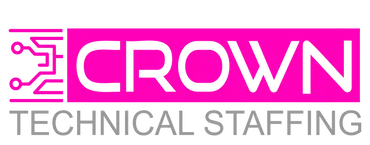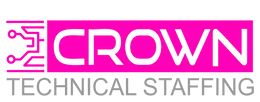Artificial Intelligence (AI) is here to stay. It’s not just a fleeting trend but a foundational shift that’s set to redefine how CHROs, COOs, and Chief Engineering Officers attract, evaluate, and onboard their talent. It’s already proven to be a smart and cost-effective means of speeding up the recruitment process, while also improving the quality of hires. So, how can AI enhance your current talent acquisition strategy? Read on to find out!
Understanding the AI-Driven Shift in Recruitment:
The manufacturing industry, with its intricate demands and global competition, requires a recruitment process that’s both efficient and precise. AI’s promise lies in its ability to offer both. Companies are increasingly leaning on AI to streamline their recruitment, not just as a nod to modernity but as a strategic move to stay competitive.
The overarching benefit?
A significant reduction in the time and resources traditionally spent on hiring, allowing HR teams to focus on more strategic, human-centric aspects of their roles. Interestingly, AI is being used mainly in two simple ways – first to provide an evaluation tool that analyzes resumes and picks out candidates based on a set of specific parameters and the second is to provide chatbot functions that are sophisticated enough to run initial interviews to help screen them. In both functions, the AI tool works to follow instructions that are provided by humans, allowing recruiters to set specific requirements that a candidate must possess in order to move to the next level.
The Potential AI Offers
As with every concern, there are several positive points that make AI an attractive option. These can include:
- Reducing Unconscious Bias – AI algorithms have ushered in an era where the most suitable candidates can be identified swiftly, ensuring that no potential talent slips through the cracks. By using an AI tool, you are ensuring that any unconscious bias your recruitment team may have, will not stop the right person from being considered.
- Improved Accuracy – By automating the initial stages of screening, AI ensures that only the most fitting candidates move forward, all while maintaining a level of precision that’s hard to achieve manually.
- Time Reduction – AI platforms, equipped with advanced analytics, can now evaluate a candidate’s responses, tone, and even facial expressions, providing insights that were previously hard to quantify.
- Better Recruitment Speed – getting the best candidates often relies on a speedy recruitment process. AI can reduce the time you spend on recruitment, helping you to speed up the time from application to job offer.
The Downside to AI
The integration of AI into recruitment processes promises efficiency and precision, but like all technologies, it’s not without its challenges. Here’s a closer look at some of the concerns surrounding AI in recruitment:
- Historical Data Limitations:Insight: AI systems are trained on historical data. If this data carries biases, the AI can inadvertently perpetuate them, potentially sidelining deserving candidates from underrepresented groups.
- Over-reliance on Fixed Parameters:Insight: AI’s strength in pattern recognition can become a limitation if it becomes too rigid, potentially overlooking candidates with unconventional backgrounds but high potential.
- Emerging Technology Hiccups:Insight: As with any evolving technology, some AI tools are still in their infancy stages, potentially lacking the sophistication required for Executive search or highly nuanced Engineering and/or Technical recruitment.
- Soft Skills Assessment:Insight: While AI excels at analyzing quantifiable data, it might not be as adept at gauging intangible qualities like emotional intelligence or adaptability.
- Gaming the System:Insight: If a candidate is aware that AI is being used, they could then write their resume to the AI requirements to ensure they are shortlisted.
Should You Use AI in Recruitment?
When it comes to deciding whether AI is a tool that you want to use, it is worth considering the time you spend on recruitment and whether you want to find the fairest way of sorting potential candidates. Even with the use of AI, there will always be a need for the human touch, allowing you to maintain the final say over who is and isn’t considered for your openings. Ultimately, we believe that AI has the potential to provide quality recruitment support when used correctly.
Want to know more or need further support with your recruitment needs? Contact the Crown Technical Staffing team today!
Check out our new Talent Acquisition Accelerator. It’s designed to give HR Teams in the Industrial Machinery, Energy, and Medical Device Sectors insight into what’s working in their talent acquisition process and areas for improvement. Check it out via the link below.


